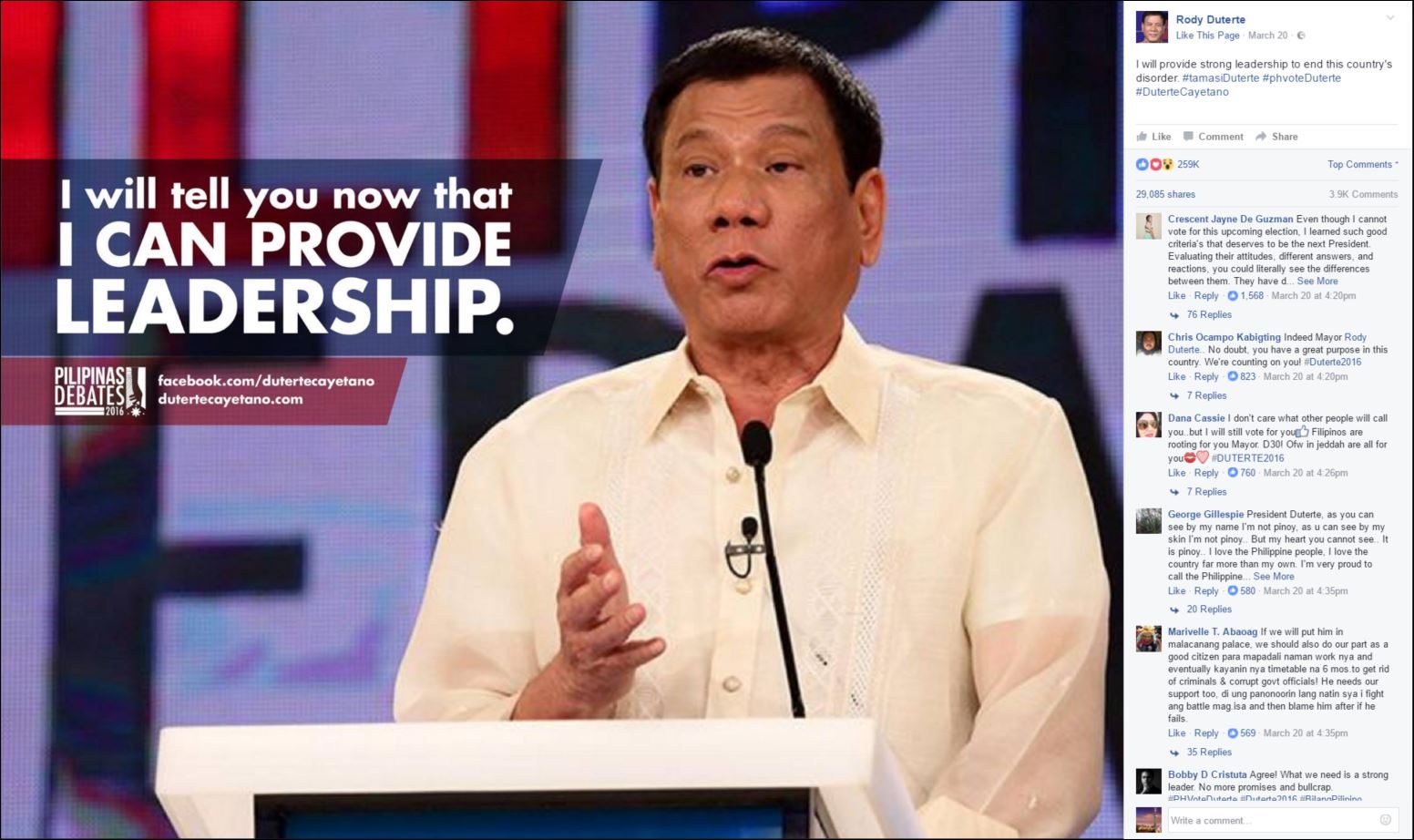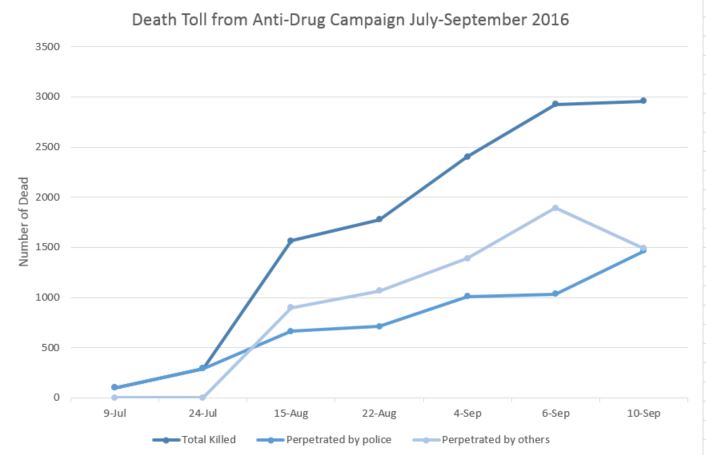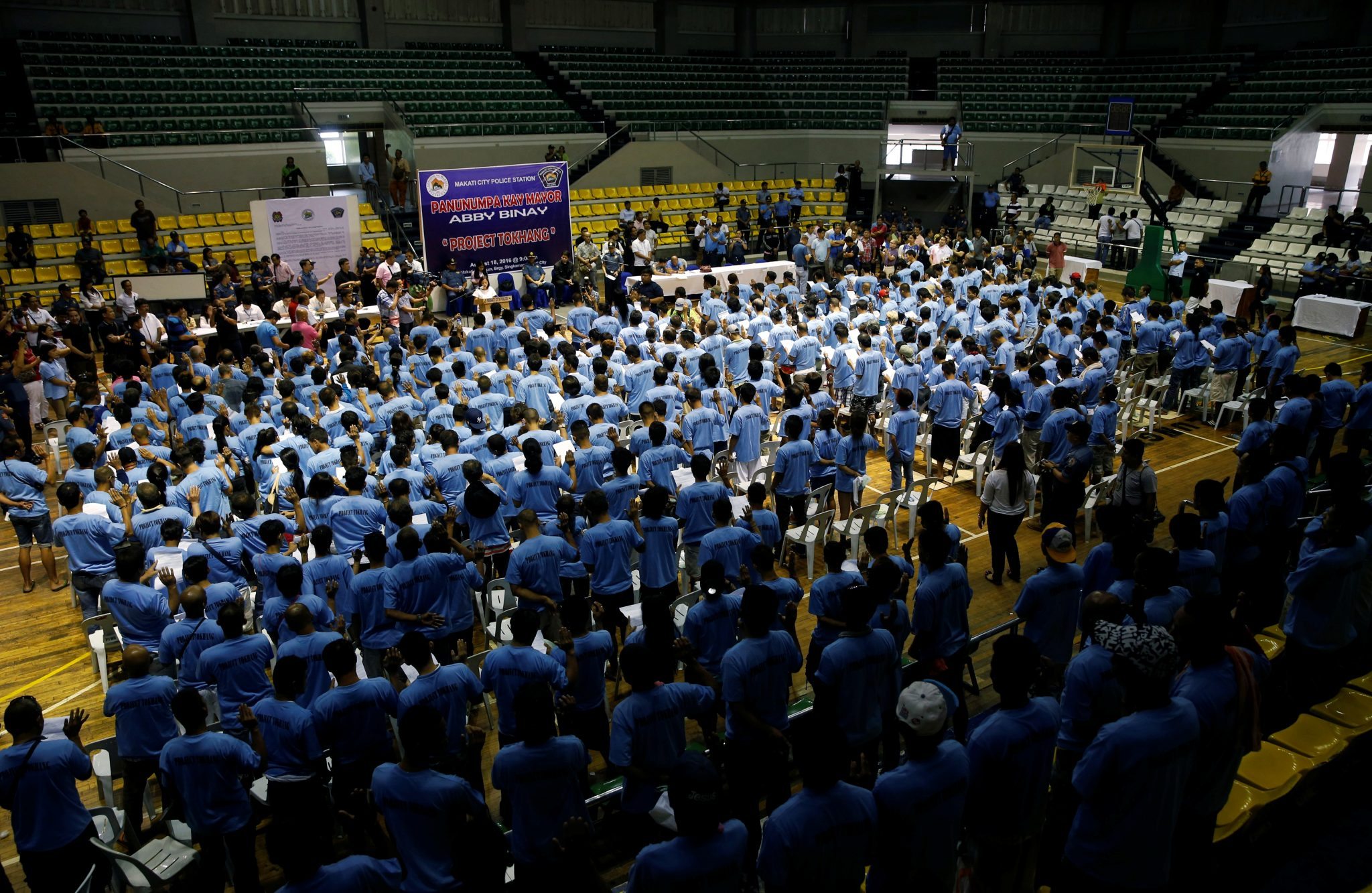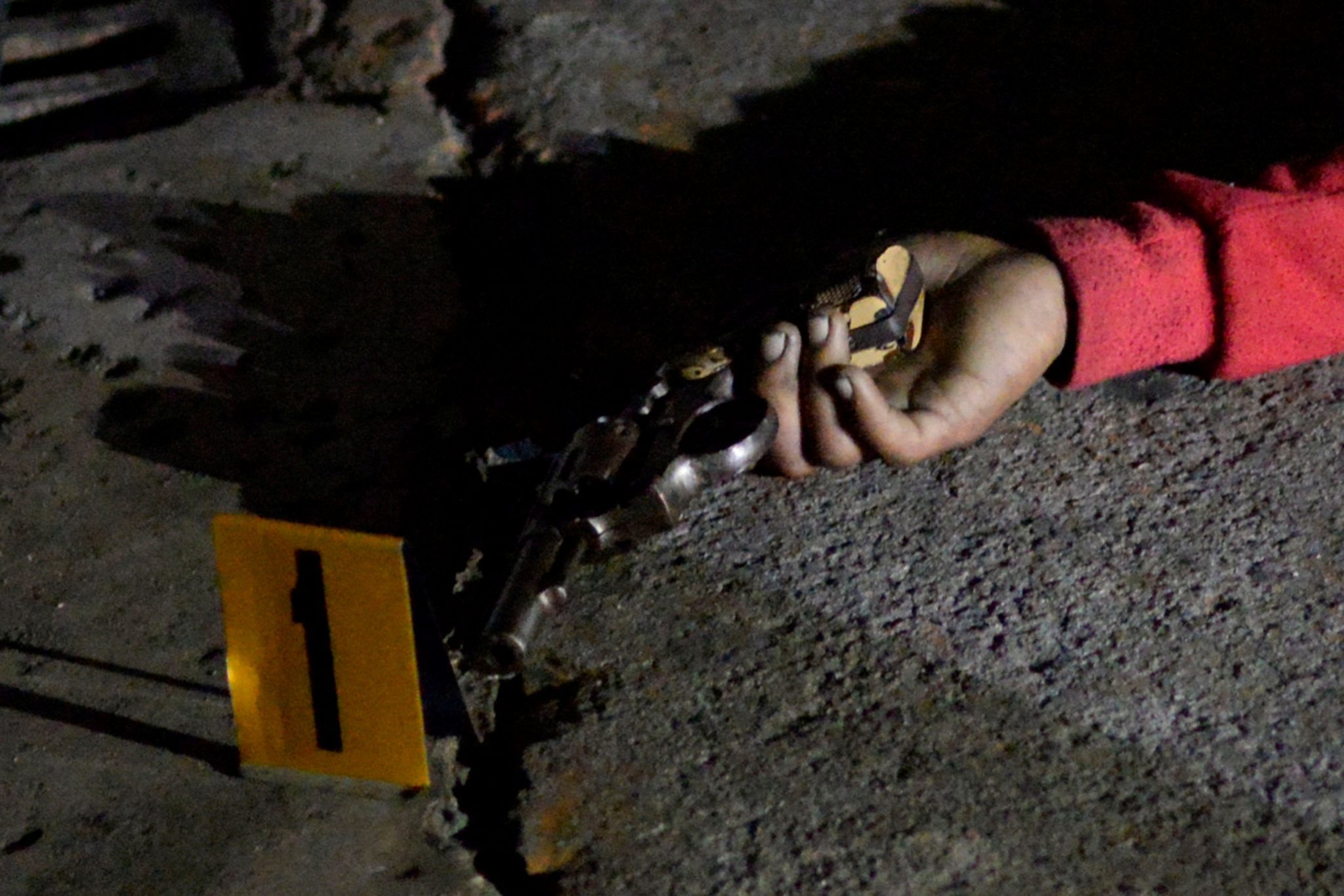This report was written by:
Oliver Wiltshire – MAX Security’s Senior Analyst on the Philippines
And reviewed by:
Tzahi Shraga – MAX Security’s Chief Intelligence Officer, ret. LTC from the Israeli intelligence community
Lihi Hayon – MAX Security’s Regional Director of Intelligence, Asia
Executive Summary
• Duterte’s first months in office have shown unprecedented, domestic support for policies such as anti-crime and anti-drug campaigns while putting serious strains on much of the country’s foreign relations.
• The anti-crime and anti-drug campaigns are likely to continue in the coming months, despite internal and external criticism of the methods of execution.
• Militancy will persist in the Philippines with an elevated risk of attacks in major northern cities; Abu Sayyaf likely to be driven out of Sulu stronghold.
• Finally, the unpredictability of Duterte’s policy could deter foreign investment over worries about financial security, having a negative effect on the country’s markets and economic situation.
• Travel to Metro Manila may continue at this time while adhering to standard security protocols given the latent threat of militancy, crime, and unrest.

Current Situation
- On June 30, Rodrigo Duterte was inaugurated to become the Philippines’ 16th president, becoming the first Premier to come from the restive island of Mindanao. Running mainly on a campaign of strong anti-crime and corruption policies, a vote for former Davao Mayor Duterte was widely seen as an act of protest against the perceived stagnant and corrupt politics of the longstanding Manila elite, as well as a symbol of frustration over the country’s continuing problems with rampant crime and drug addiction.
- Duterte’s campaign promised a number of bold and popular governing strategies, at the core of which was his pledge to end crime in the country within six months, primarily by attacking the drug market, most notably based around ‘Shabu’, a local name for crude Methamphetamines. Duterte’s promise to end all crime was considered substantiated by his claims that, under his command, the city of Davao had become the safest city in the country, with a substantially depressed crime rate. Additionally, Duterte positioned himself as a strong symbol of national pride, promising to stamp out militancy in the Islamic State-supported Abu Sayyaf stronghold of Sulu, and refusing to be perceived as placating to international powers who criticize his policies, particularly the US.
Assessments & Forecast
Anti-militancy Campaign
- Duterte’s anti-militancy push began with a campaign focused on making peace with communist insurgents in the south, and rebuilding Autonomous Region of Muslim Mindanao (ARMM), while working on completing the peace process with a number of moderate Muslim groups in the region initiated by previous President Benigno Aquino III. However, following the failure of Manila’s unilateral ceasefire on July 25 with the communist rebels after just one day, and continuing Abu Sayyaf activity in the south, Duterte began to increase his commitment to military activity to end militancy in the region.
- The threat of such operations was fairly successful in coaxing the communist groups Communist Party of the Philippines-New People’s Army-National Democratic Front (CPP–NPA–NDF) to the negotiating table, however, have led to an increase in Abu Sayyaf militancy in the south. Particularly, Armed Forces of the Philippines (AFP) pushes against Abu Sayyaf held territory on the islands of Basilan and Jolo were cited as one of the reasons for the September 2, Davao City bombing.
Continuing counterinsurgency operations in Sulu, as well as increased Islamic State focus on the Philippines, likely to spur additional attacks in urban centers
- The Davao attack on September 2 was one of the most significant to occur in the Philippines in recent years for a number of reasons. Firstly, the attack occurred in an urban center and one of the Philippines most developed and important urban areas, the city of Davao; secondly, the attack happened amid increasingly and ostensibly successful counterinsurgency operations on the Abu Sayyaf stronghold of Sulu; finally, the attack, one of the bloodiest in a number of years, occurred under the watch of one of the Philippines’ more security focused presidents.
- The significance of the attack taking place in a major city and coming amid the increasing AFP operations in the Sulu Archipelago are closely linked to the motive of Abu Sayyaf in carrying out the attack. The tactic of attacking civilian centers when losing territory formerly held by the group has become a relatively common modus operandi for the Islamic State and groups affiliated with the global jihadist organization. Such a tactic serves two purposes; first of all, it projects high levels of operational capabilities toward the government and public, illustrating the militants’ ability to conduct attacks in civilian hubs, not just in the often sparsely populated territories held by many IS affiliated groups. Secondly, it succeeds in panicking the public and encouraging fear of the militant group, which subsequently increases instability in the country as a whole, as questions over competent leadership emerge, and divisions grow over the correct way to handle the attacks. While the Philippines have been involved in an internal conflict with Muslim Moro rebels in the south for decades, they have seen very few attacks in major Catholic cities, outside the island of Mindanao. With this in mind, a shift by Abu Sayyaf to start frequently targeting major cities and tourist hubs, particularly Manila, would likely cause high levels of panic across the country, and a crisis of confidence in the President, the military, and the operations in the South. Furthermore, we assess that additional Abu Sayyaf attacks are possible in major cities in the coming months as the group attempts to further capitalize on the aforementioned sentiments.
- Additionally, the possibility of increasing attacks on major urban centers in the Philippines has the potential to seriously hinder Duterte’s support among the public. While Duterte remains extremely popular, his controversial governing technique remains tied to his ability to achieve results in a way that helps the lower socioeconomic classes he campaigned on serving. In the event that his contentious criminal campaigns and novel relationship with the constitutional law are unable to guarantee the safety of the people or perhaps even contribute to the deterioration of the country’s security situation, his constituents will be far less likely to accept such turbulent policies as he has put forward in his anti-drug campaigns. A string of future urban attacks, particularly targeting Manila, would likely bring into question whether or not Duterte’s municipal governing technique applied to the city of Davao is adaptable to a national level, with so many more groups with unique interests and dynamic aspirations. This was already illustrated on a smaller scale by the President’s misjudging of the complexities of the communist insurgency when he declared a unilateral ceasefire with the CPP–NPA–NDF, which was promptly followed by a communist attack on AFP personnel. The handling of the militant situation in the country’s south will stand as the first and most important test of Duterte’s leadership to date.
- FORECAST: Duterte’s campaign against Abu Sayyaf is not likely to succeed totally, just as former President Joseph Estrada’s campaign was unsuccessful in totally eliminating the threat from the IS aligned group. Additionally, considering IS instructions to carry out attacks across Asia and the increasing militant recruits who will join following an IS call for followers to travel to the Philippines, more attacks can be expected. These attacks will take place primarily around the southern island of Mindanao, with additional instances targeting major cities in the northern island groups of Luzon and Visayas, particularly targeting areas such as Cebu and Metro Manila, as well as popular international tourist locales such as Boracay and Palawan. This is especially the case as Abu Sayyaf militants flee the fighting in the Sulu Archipelago and begin to regroup elsewhere, on the Philippine island of Mindanao, as well as the Malaysian island of Sabah.
Anti-drug Campaign
- The methods through which Duterte has pursued his policies of strong anti-crime and anti-militancy campaigns have mostly manifested in a relentless commitment to seemingly pragmatic, ends-justify-the-means strategies, which often circumvent traditional governing and policing practices, as well as checks and balances, in place of populist, common-sense offensives. These methods involve awarding sweeping powers to police and military forces, and by-passing political and judicial checks. In terms of the drug campaign, this has manifested in a police carte blanche to shoot-on-sight anyone suspected of being involved in the narcotics trade.
- The controversial decision to encourage the extra-judicial killing of individuals linked to the narcotics trade, particularly drug dealers and drug addicts, has subsequently brought about a dramatic increase in reported killings in major cities across the country. Although the numbers cannot be independently verified, official police statistics indicate that around 3,000 people have been killed in the drug operations since Duterte took office on June 30, both by police and civilians, while an additional 5,400 were arrested and 565,805 dealers and users surrendered to police, to date. At least half of the killings are believed to have been carried out by civilians. Nonetheless, the Director-General of the Philippine National Police, Ronald dela Rosa, stated that crime rates had fallen by 49% since the President took office.

Duterte’s drug policy, although initially successful, may decrease trust in police forces, encourage environment of fear; lack of oversight could spill over into other areas
- Duterte’s unique and harsh approach to the drug problem in the Philippines, although highly controversial on the international stage, appears to be, for the most part, successful when judged against its own objectives and intentions. Many have looked at the number of arrests and surrenders, as well as the incumbent government’s willingness to expose members of the establishment who were involved in the drug trade, and argued that in the short term the policies seem to be working. While it remains impossible to determine how many of the between roughly 3,000 dead were indeed involved in the drug trade, due to the lack of judicial proceedings, initial reports do suggest that the availability of drugs on the streets of Manila has notably decreased.
- That said, although such policies may seem pragmatic and necessary by Duterte’s supporters, given the scope of the problem in the country, it could be argued that they are in fact, short-sighted and detrimental to the country’s long-term stability. While the initial fear of the killings may help to decrease the number of drug dealers willing to risk their lives, and thus lessen the impact of narcotics in the short term, the overarching powers given to the police will have a harmful effect on the ability of the Philippines’ judicial system to properly function. Reports have already begun to emerge of police misusing their newly gained power for personal gains or to deal with interpersonal disputes, actions which will stand to lower the general public trust in legal authorities. Furthermore, although the de facto legal capacities of the security forces have increased, their salaries have remained the same, as of the time of writing, which remains one of the primary causes of corruption. Considering that the power of the police has increased, the oversight has decreased, and their compensation has remained static, we can expect that abuses of power are likely to increase, especially in the peripheral areas of Manila and major cities, where local police officers wield significantly more power. Such an increase in corruption by a police force which growingly views itself as immune to prosecution is liable to be very damaging for the general state of law and order in the country.
- Additionally, the current success of the anti-narcotics campaign is likely to encourage the executive to direct, and the public to support, the suspension or circumvention of legal statutes in other parts of governance in favor of policies which are deemed pragmatic and forthright in dealing with major issues. This culture of nonconformist governing has the potential to continually erode the rule of law in the Philippines, to be replaced with the cursory will of the country’s President to dictate as he sees fit, in the name of the nation. The consequences of such a governing style have already been hinted at by President Duterte, who, on a number of occasions, has threatened to disband congress if they disagree with his plans for the country, particularly with regards to law and order. Such a lack of consideration for the laws of the land, likely stemming from Duterte’s former work as a prosecutor in Davao, in which he became somewhat disillusioned with the corrupt and inefficient workings of the Philippine justice system, indicates a favor for authoritarian over constitutional rule.
- Duterte’s disregard for legal consistency and favor for diminishing oversight of security forces also increases the instability of the country for foreign investors and travelers. Without the insurance and security that is guaranteed through the ability to fall back on the rule of law to aid international businesses to interact smoothly with the government and private companies in the Philippines, the reliability of contracts and safety of investments cannot be dependable, vastly increasing the risk to international businesses. Moreover, the political culture of ignoring legal statutes and disregard for foreign partners, as has been shown by Duterte, has the potential to, on some level, be adopted as a model of international interaction by both public and private figures in the country. Lastly, increasing police corruption would further hinder the possibility of operations in the country, especially when the threat of drug accusations can be so easily used as an attempt to strong arm civilians by authorities. An issue which is further illustrated by the death of a British national on September 10, who was killed due to purported drug links and whose murder has yet to be investigated by authorities.
- FORECAST: Considering the centrality of such policy to Duterte’s campaign, we assess that the drug campaign will not relent, and on the contrary, is likely to increase in intensity with a possibility that the death toll will reach the high thousands by the year’s end. Furthermore, it is likely that police and non-government personnel will become decreasingly weary on who is targeted, possibly leading to significant numbers of dead without a trial. While the policy is currently popular and is likely to remain so, we assess that protests may occur if particularly controversial killings start to be reported on a regular basis, especially if political rivals of Duterte believe they can use such killings as leverage in their own campaigns. Furthermore, we believe that additional reports of foreign nationals being killed in the anti-drug campaign will arise, further distancing the Philippines from many of their allies.

Foreign Relations Controversies
- The Philippines’ international relations have taken a significant turn since President Duterte’s inauguration, with a number of statements on both bilateral and multilateral relations causing considerable tensions. During his electoral campaign, Duterte became well known for his outbursts of candid and often crude opinions, particularly on sensitive issues and directed at prominent public figures. The President was widely criticized for insulting the Pope and telling him not to visit the Philippines anymore.
- In the same vein, on September 6, a meeting between Duterte and US President Barack Obama at the ASEAN conference in Laos was canceled after the Philippines’ President used offensive language against the US President in a speech criticizing Obama’s plans to confront the issue of extrajudicial killings led by Duterte. Furthermore, the President has made a series of statements outlining his intentions to downplay the Philippine-US relationship and foster relations with China and Russia. After this, many prominent financial analytics groups reported significant drops in foreign investment in the Philippine Stock Exchange Index, which fell 4.48% between August 15 and September 16.
Duterte’s unorthodox governing style, controversial rhetoric increases domestic support among rural poor while distancing country from key international players
- Duterte’s policies with regards to foreign leaders are likely to become increasingly problematic in the future, assuming he retains his outspoken and blunt speaking and governing style. A cooling of relations between the Philippines and its top military and diplomatic ally, the US, could prove detrimental for the archipelago country, currently in the midst of a major island dispute with the People’s Republic of China. The US has given the Philippine government over 500 million USD in military aid since 2002, 79 million USD of which came in 2015 amid the ongoing South China Sea dispute. While Duterte’s comments are often enjoyed by his supporters, there also remains a major public support for policies which balance China’s attempts to build on the Spratly Islands and Scarborough Shoal. Any instances which are seen to hurt the Philippines’ position in the South China Sea, such as a reduction of US involvement, is likely to be received negatively by the electorate, especially if it plays into China’s advantage. Furthermore, polls show that the Filipino public has shown around 90% favorability towards both the US and Obama, further indicating that the distancing between the two countries would negatively impact the incumbent government’s popularity.
- Finally, Duterte’s uncompromising positions and unorthodox rhetoric have the potential to not only cause damage to the Philippines’ political relations but also to its global economic connections. Duterte’s comments characterize an unpredictable leader, who has little respect for a convention in either the governmental or international arena. This is likely to have a further direct effect on the markets, as was already witnessed in the aftermath of the comments about President Obama and the US. If investors start to believe that the policies of Duterte are erratic and that the Philippines no longer remains a stable environment for foreign investment, the economy could begin to stagnate or dip. In this regard, it could be argued that while previous Presidents looked to retain the status quo, while not addressing some of the country’s domestic issues, the current president is focused on domestic issues, in a way that could threaten the country’s foreign relations, both in the political and economic sectors. The further distancing of the Philippines from the West has the potential to push the country towards other major regional players, such as China and Russia, who Duterte has expressed a willingness to open up to, a move that would likely seriously affect trade with both the US and Japan, the country’s two main trading partners.
- FORECAST: In terms of the Philippines perception abroad and the country’s relations with the US, aside from any major shift in policy from the international community, Duterte’s government is likely to continue to attempt to downplay its connection to the US and warm relations with China. This may see significant negotiations taking place in the South China Sea, economic and trade deals, or diplomatic moves in an attempt to shift Manila’s allegiances towards Beijing. While the Philippines is unlikely to make any major moves to break its relations with the US, continuing comments by the Philippine President will occur, highlighting his strained relationship with the Asian archipelago’s former colonial power. Finally, such issues will further deteriorate trust in the Philippine economy abroad, having detrimental effects on its foreign investments and general economic development.
Recommendations
- Travel to Metro Manila may continue at this time while adhering to standard security protocols given the latent threat of militancy, crime, and unrest.
- Those operating or residing in the Philippines should minimize contact with police and security authorities, due to the prevalence of corruption increasingly wide range of powers given to police officers and lack of due process with regards to criminal procedure. When possible it is advised to seek private security while traveling throughout the country.
- Avoid all travel to the western part of the island of Mindanao, as well as the Sulu Archipelago and avoid nonessential travel to the island, including Davao City, given the risk of militant attacks.
- Minimize travel to known touristic sites throughout the country, as well as government installations and prominent national symbols, given the elevated risk of militant attacks targeting Western nationals.
DISCLAIMER: Please note that any views and/or opinions and/or assessment and/or recommendations presented in this text are solely those of Max Security. If you are not the named addressee you should not disseminate, distribute or copy this text. If you are not the intended recipient you are notified that disclosing, copying, distributing or taking any action in reliance on the contents of this information is strictly prohibited. Max Security Solutions accepts no liability for (i) the contents of this text/report being correct, complete or up to date; (ii) consequences of any actions taken or not taken as a result and/or on the basis of such contents. Copyright – 2016 Max Security
